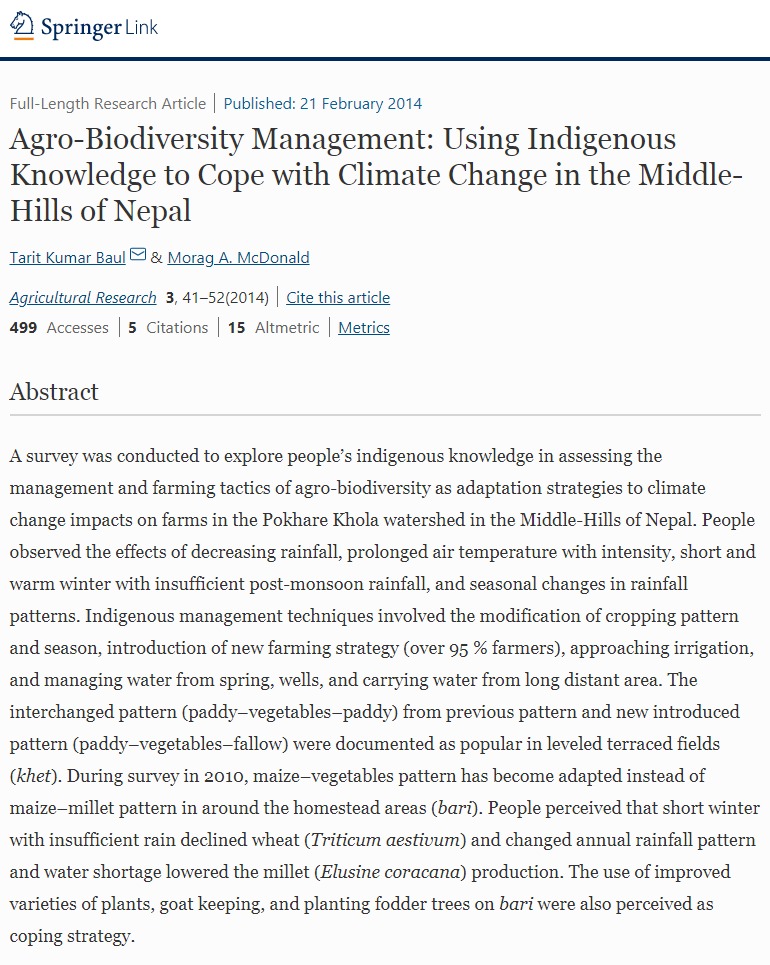
A survey was conducted to explore people’s indigenous knowledge in assessing the management and farming tactics of agro-biodiversity as adaptation strategies to climate change impacts on farms in the Pokhare Khola watershed in the Middle-Hills of Nepal. People observed the effects of decreasing rainfall, prolonged air temperature with intensity, short and warm winter with insufficient post-monsoon rainfall, and seasonal changes in rainfall patterns. Indigenous management techniques involved the modification of cropping pattern and season, introduction of new farming strategy (over 95 % farmers), approaching irrigation, and managing water from spring, wells, and carrying water from long distant area. The interchanged pattern (paddy–vegetables–paddy) from previous pattern and new introduced pattern (paddy–vegetables–fallow) were documented as popular in leveled terraced fields (khet). During survey in 2010, maize–vegetables pattern has become adapted instead of maize–millet pattern in around the homestead areas (bari). People perceived that short winter with insufficient rain declined wheat (Triticum aestivum) and changed annual rainfall pattern and water shortage lowered the millet (Elusine coracana) production. The use of improved varieties of plants, goat keeping, and planting fodder trees on bari were also perceived as coping strategy.